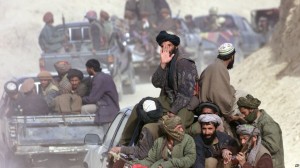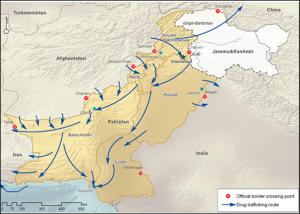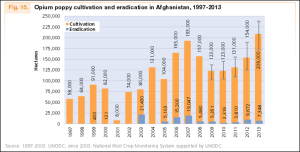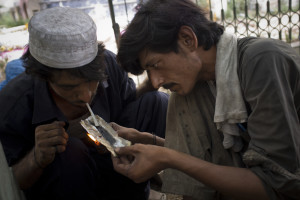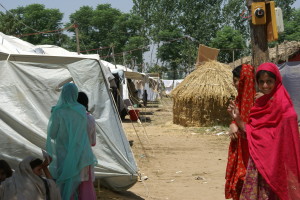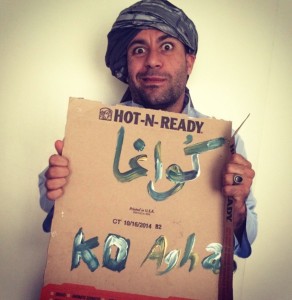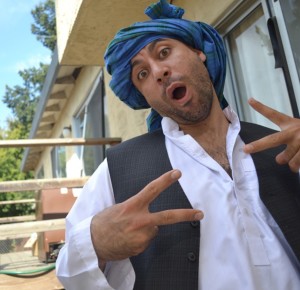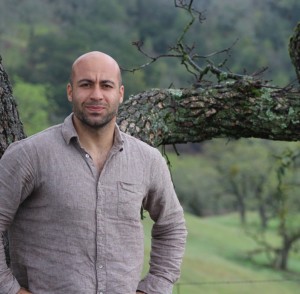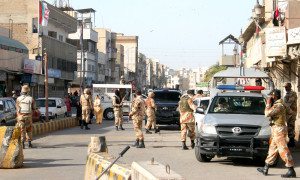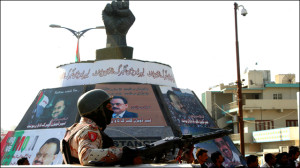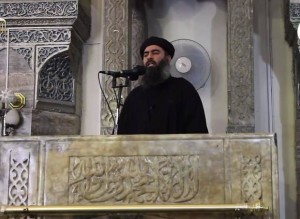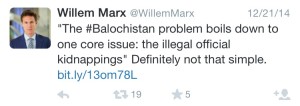 Pakistani Taliban chief Mullah Fazlullah
Pakistani Taliban chief Mullah Fazlullah
By Iftikhar Hussain
Pakistan, an ideological state, overrun by religious radicals, have turned the society into a one-way alley closed to any non-Islamic argument or interpretations. “To eradicate the ‘ideology’, you have to fight the core”, says Mohammad Jibran Nasir, a Pakistani peace activist who is single-handedly spearheading a campaign to convince his countrymen to reclaim the country form religious radicals.
Nasir became a symbol of civil society activism and a strong voice of opposition to religious extremism in the wake of the December 16th Taliban attack on a school in Peshawar in which dozens of children were killed.
Nasir, 28, a former lawyer but now a full time activist, is currently on a six-week tour of the US, where he is speaking at several colleges and universities to mobilize Pakistani Americans to influence US policies towards Pakistan, one of Washington’s key anti-terrorism allies, for a moderate Pakistan.
In an exclusive interview to VOA Deewa, Nasir has shared his views on the dangers to free speech in Pakistan, reasons behind the state pro-radical narrative, the military’s dual policies, like labeling good and bad militants, and where to start the effort that is generally referred to as ‘reclaiming ‘Pakistan from religious radicals.’
Pakistan suffering from inability to have a dialogue
Nasir says that everyone is aware of the dangers to free speech in Pakistan because when in any society the intolerance is on the rise, people are not willing to address or entertain ideas which are unknown to them, or which actually questions the fundamental core. “This is what Pakistan is suffering from, its inability to have the discourse and to have the dialogue.”
Pakistan is a reactionary nation
Pakistan has existed as a reactionary nation because of its inbuilt sense of insecurity since the beginning, especially due to its enmity with India associating the neighboring nation with its Hindu religion. He says, “This is where the rightists’ conservative narrative comes from.”
Pakistan state intolerant to progressive thought
Nasir says that in Pakistan the state does not tolerate progressive thought. “If you want to argue that religions should not be part of politics, that’s a progressive thought and it is not something tolerated by the state in Pakistan”.
Fighting the core
Nasir says that the extremist ideology in Pakistan comes from the educational institutions, especially the educational policy adopted by the late military dictator Zia ul –Haq. “Even those people who are going to schools, and those who read books and other stuff in the curriculum, they are being trained and groomed rather to follow a particular narrative, so it’s not education”, he argues. To address the issue, part of the solution is to reform Madrasas (religious schools) curriculum. He says that the military dual approach towards tackling terrorism must be addressed too.
Religiosity without studying religion
People in Pakistan are passing verdicts in the name of religion without studying the religion. For example, he says, the blasphemy law death penalty was framed by Advocate Ismail Qureshi for the late Zia ul Haq in the 1980s. “It’s very interesting that law cited a fatwa issued by Imam Ibne Abideen justifying death penalty but if you actually read the fatwa, there is no death penalty for blasphemy”.
Where to make a start?
Nasir says if you have to question the ideology (religious extremists’ ideology) in Pakistan, you have to go deeper and address the root cause. He suggests “we need to reach out to all the stakeholders and talk to them in their language that they (religious radicals) do all these in the name of Islam and Islam (religion) is a very (personnel) and sensitive thing.”
Nasir rose to national and global fame after he stood up to condemn radical cleric Maulana Abdul Aziz, former leader of Islamabad’s Lal Masjid, Red Mosque, who favored the Taliban over their attack on Peshawar’s Army Public School that left 142 people, most of them children. Nasir not only began a social media campaign against Aziz but staged incessant rallies in Islamabad to condemn the mullah, who had come to be known as a symbol of radicalism in the heart of the Pakistani capital. For his tirade against Aziz, Nasir received death threats from Taliban.

